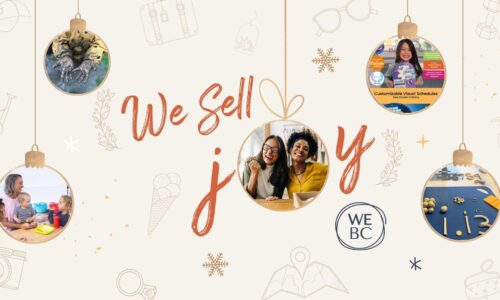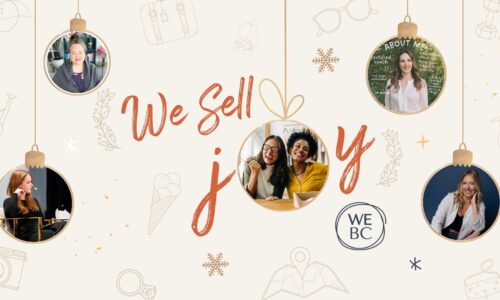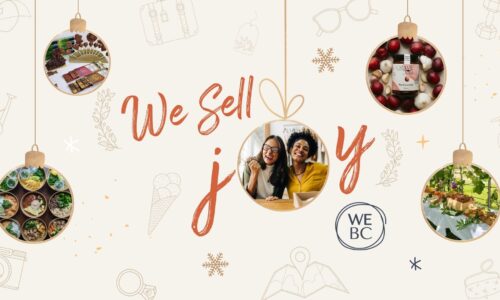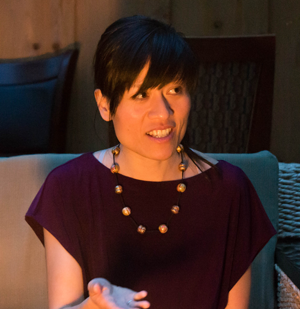
In 2009, Daphne Woo was working with Nike EMEA in the Netherlands. When a reorganization gave her the opportunity to re-evaluate her life priorities, she decided to align her career choices with her values.
She originally started Amacata in 2010 to expand on a side hustle with her partner Noud de Rover, of having an online natural beads shop.
With the guidance of a number of mentors and coaches in the Netherlands during this time, Daphne created Amacata as an experiment of something that could align with her interests and values. It didn’t sit right with Daphne that sustainability was not the leading factor in the majority of garment brands, and Daphne felt that she couldn’t contribute her energy to what is coined nowadays as a “fast fashion” industry.
“I will never forget what one coach said to me: ‘Daphne, I can tell that you really want to do this’ [have my own business].”
Daphne eventually worked with two other sportswear brands (Asics in the Netherlands, and then upon returning back to Vancouver, Lululemon).
“Although immensely grateful for all the experience of working for these companies and engaging with so many wonderful individuals abroad and within the offices, I couldn’t help but feel that I needed to stop contributing to ‘a path of destruction’.”
In 2017, Daphne resurrected Amacata as a social venture after following through with a 6-month alternative business course with Groundswell Community. That’s when she registered the business as Amacata Design Concepts and publicly launched it with a social mission to create awareness of the social and environmental impacts of fast fashion.
Her intention with Amacata Design Concepts is to spread awareness towards slow fashion alternatives and (re)connectedness to nature, as a means to alter society’s reliance on fast fashion. Daphne creates and sells naturally-dyed wearable textiles, home décor, special occasion accessories, and jewelry of natural materials that support socially and environmentally-conscious living.[su_spacer=”10″]

[su_spacer=”10″]“I am also available for commissions of public art display such as hotels, schools, offices, or homes. My services include naturally dyeing for small ethical businesses and individuals. Additionally, I enjoy sharing my craft by providing workshops. My audience here can be anyone from corporate events to community markets.”
Daphne participated in the Women’s Enterprise Centre One-to-One Mentoring Program in October 2018, and was matched with Lucy Gregory of Salt Design Co. / Design Build Grow.
“I benefited greatly from each and every meeting with her.”
As Daphne’s business grew, she feared that her business had “too many” offerings.
“My mentor assured me that it was completely fine to be doing all the things I wanted to do as long as they were all related to one another. That was a huge relief to hear.”
Since working with her mentor, Daphne succeeded in incorporating new systems of work flow into her business, categorizing financial goals, improving her brand recognition, updating her business cards, and nearly completing an updated website.[su_spacer=”10″]
“All of this didn’t just happen on its own from the meetings I had with Lucy… She was a portal to many resources, concepts, and encouragement towards the tools, events, network, decisions, and actions. Now here I am, thinking about all the things I’ve achieved since the beginning of meeting with my mentor. If I have to come up with one big lesson I learnt from her, it would be to believe in myself and the rest will follow.
I really enjoyed my time with my mentor. It continues to guide me within reflection upon what is working for her in her business, and what could work for me.
It is an ever-evolving process and the learnings continue to make impact. She understands there is no separation between life and career as an entrepreneur in that each interweaves with the other. While practical advice is always helpful, I really appreciated her emotional intelligence in stating the importance of how things ‘feel’.”[su_spacer=”10″]
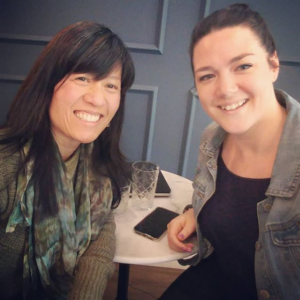
[su_spacer=”10″]Mentee Q & A
[su_spacer=”10″]Q: What inspired you to join the mentoring program?
Having had experience being a mentee from numerous coaches and mentors at different phases in my life, I understand the importance of having someone unbiased I could talk to about my business. Through WEC, the financial investment is very little compared to what one gets for the exchange of time and commitment from a good mentor.
[su_spacer=”10″]Q: What are the biggest lessons you learned from your mentor?
In my 6-month time with Lucy Gregory of Salt Design Co. / Design Build Grow, I benefited greatly from each and every meeting with her. At the beginning, I was concerned that I had “too many” offerings within my business. She assured me that it was completely fine to be doing all the things I wanted to do as they were all related to one another. That was a huge relief to hear. Often my takeaway each time would be a little metaphor she would share with me to address whatever challenge I was going through. Quotes like:
- “You have all the ingredients; you just have to make the cake!”
- “In order for the tower to be structurally stable, you must keep working on building it. Finding other things to fiddle around with besides the tower will not make the tower grow.”
- “If it feels sludgy, STOP!”
- “Motion is Lotion.”
[su_spacer=”10″]Q: What struggles or barriers have you encountered as you’ve grown your business?
There are so many! Maintaining financial viability of my business as it evolves continues to be a challenge but I continue to feel encouraged as I grow more into my role with Amacata.
Being a sole proprietor, I often wonder what the sweet spot is—when and where my business will feed my lifestyle choice, both financially and emotionally.
Other challenges include finding the ideal workspace/studio, and not having a team around me as I did in the companies I worked for. I used to struggle with an open office environment in these companies, but now I struggle with working alone (sometimes).
[su_spacer=”10″]Q: What personal growth have you experienced as an entrepreneur?
It would definitely be more confidence in myself in making the decision to transition from a product person to an artist. This is huge for me as it feels more right for Amacata/me than it has ever before.
For the longest time I’ve not been feeling that making more “product” is a part of the solution for addressing the apparel industry.
Transitioning to publicly saying that I am an artist has helped me with growth towards my authentic self.
[su_spacer=”10″]Q: Where do you see your business in five years?
I see my business thriving among a local network of social impact driven entrepreneurs and artists, and also globally with those demanding change – particularly, but not limited to, the apparel industry.
[su_spacer=”10″]Q: What other services has Women’s Enterprise Centre provided you with?
Peer Financial Training that I participated in a few years ago introduced me to a group of great women entrepreneurs! I also find the newsletters and webinars informative.
[su_spacer=”10″]Q. Any tips for other women entrepreneurs?
My tip for women entrepreneurs is that it is always helpful to see others as mentors, as well as ourselves mentoring others.
We have the most success when we do things together, rather than alone. It is also much more fun.
Individuals identified as women make natural born leaders because of our innate ability for empathy.
Don’t lose sight of empathy; for others and for yourself. The world will thank you for that.[su_spacer=”10″]

 [su_spacer=”10″]
[su_spacer=”10″]
[su_spacer=”10″]Where to learn more about Amacata Design Concepts


